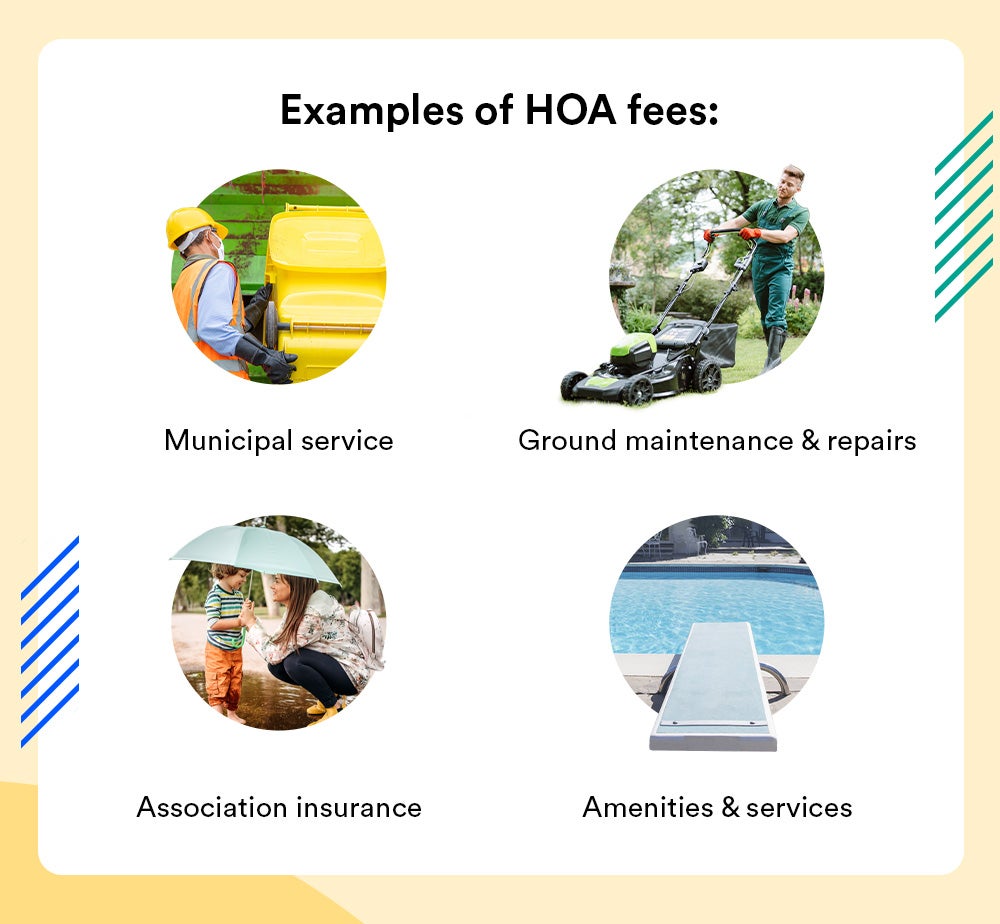
Understanding HOA Fees: What You Should Know
When you’re house hunting or considering moving into a condominium, you may come across a common term: HOA fees. But what exactly are HOA fees, and why should you care about them? In this article, we’re going to break it down for you, so you can understand what paying these fees means for you as a homeowner or resident.
What is an HOA?
First things first: HOA stands for Homeowners’ Association. It’s a group or organization in a condominium, planned community, or subdivision that makes and enforces rules for the properties and their residents. Those who purchase property within an HOA’s jurisdiction automatically become members and are required to pay dues, known as HOA fees.
Breaking Down HOA Fees
HOA fees are typically charged monthly but can also be levied annually or quarterly. These fees are essential for maintaining the quality of life within the community and for the upkeep of common areas and amenities.
Here’s what these fees generally cover:
- Maintenance and Repairs: This includes caretaking of common areas such as pools, gyms, parks, lobbies, elevators, and other shared spaces that require ongoing maintenance.
- Landscaping: The HOA often handles the cost of gardening and landscaping in common areas to ensure the community looks pristine.
- Insurance: Part of your fees might go toward the insurance of the buildings and general property (not to be confused with your personal homeowner’s insurance).
- Utilities: Your fees may include the cost of utilities for common areas—think lighting in the parking garage or the electricity used in the clubhouse.
- Reserve Fund: A portion of HOA fees typically goes into a reserve fund, which is saved for big, unplanned expenses like sudden repairs due to natural disasters or major renovation projects.
It’s important to note that HOA fees can vary widely depending on the size of the community, the number and quality of amenities offered, the property’s location, and how the association manages its budget.
Special Assessments
Sometimes, unexpected expenses crop up—like a roof in need of sudden replacement or a legal issue that requires professional consulting. When the reserve fund isn’t enough to cover such costs, the HOA might levy a special assessment. This means as a resident, you could be billed for additional fees outside of your regular HOA dues. This isn’t common, but it’s something to be aware of.
The Pros and Cons of HOA Fees
So, what are the upsides and downsides to living in a community with HOA fees? Let’s take a look.
Pros:
- Convenience: HOA takes care of maintenance, so you don’t have to worry about the upkeep of common areas or amenities.
- Uniformity: HOAs often have rules regarding the exterior appearance of your home, which can keep the neighborhood looking tidy and uniform, possibly maintaining property values.
- Amenities: Many HOAs offer amenities such as pools, fitness centers, and security that you might not have otherwise.
Cons:
- Cost: HOA fees can be pricey, particularly in luxury communities with extensive amenities.
- Lack of Freedom: The rules imposed by an HOA may restrict your ability to make changes to your property.
- Unexpected Increases: HOA fees can rise, and special assessments may be levied, impacting your budget.
Questions to Ask About HOA Fees
If you’re looking at a property governed by an HOA, it’s smart to ask these questions before you dive in:
- What is the fee structure, and how often are fees collected? Understanding this will help you budget effectively.
- What do the fees cover? Know exactly what services and amenities you’re paying for.
- How often do fees increase, and by how much? Look at the history of the HOA’s fee adjustments to get a sense of how quickly and significantly fees can change.
- What’s the condition of the reserve fund? A healthy reserve fund means less chance of unexpected costs down the line.
- Have there been any special assessments in the past? This could indicate how well the HOA anticipates and manages emergencies and whether you might expect extra charges in the future.
Final Thoughts
HOA fees can have a big impact on your life in a community and your wallet. While they might offer you convenience and added amenities, they can also be a significant financial consideration. Remember, it’s not just about the fees; it’s also about the value you get in return. Carefully evaluate what an HOA has to offer you and if it aligns with your lifestyle and budget.
Before you make a decision to buy a property with an HOA, do your homework. Understand the fees, the community rules, and what exactly you’re getting into. Always read the fine print, and if possible, talk to current residents for their insights. A well-informed decision will help make your home sweet home all the sweeter. Happy house hunting!